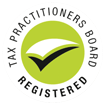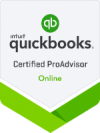When you first start a business it’s important to know the best business structure to suit your circumstances as well as the tax implications that lie ahead.
Choosing a business structure requires the advice of a professional as well as a good deal of thought to ensure your business doesn’t get into trouble down the track.
Each business structure is different, has different tax obligations and levels of complexity; so let’s look briefly at the four main business structures used in Australia:
Sole Trader
By far the simplest and cheapest structure to set up. There are far fewer obligations than any other business structure. The ideal structure for those running and managing their business alone; all your business expenses and outgoings are included in your personal tax return.
Partnership
This business structure incorporates a group of people – 2 or more – who run a business as a joint venture. Usually, a formal partnership agreement is set up with the management and general running of the business being a shared responsibility between each partner. Equally, the income and expenses are a shared responsibility. A partnership is a relatively inexpensive business structure to share and operate.
Company
A far more complex business structure, incorporating administrative costs and higher set up costs due to the need for more complex and regular reporting. The income from the company belongs to the company, not the individuals who run it. A company tax return needs to be lodged, showing income, expenses (deductions) and tax owed. It’s usual for a company to pay Pay As You Go (PAYG) instalments to ease the total income tax the company is liable for each year.
Trust
A formal deed is a requirement of setting up a trust and annual administrative tasks are the responsibility of the Trustee; the nominated person who holds the business (or property) assets for the beneficiaries. Beneficiaries are those who stand to benefit from profits. Setting up a trust can be expensive due to the need to incorporate all the annual administrative tasks into the deed that the Trustee is responsible for.

So which business structure should YOU choose?
Each business structure has differing levels of complexity and responsibility, both in tax and owner obligations. While some business structures are more expensive than others to set up, depending on your individual circumstances and the nature of your business these structures can in fact be the most profitable.
The ATO recommends that before choosing one of the above mentioned options that you talk to an accountant who can offer you expert advice based on your situation.
Founded on 35 years’ experience in tax and accounting for small businesses, the team at Etax Local have the experience and expertise to ensure your business is structured correctly to give you the best possible start – and future!
 Tax Agent
Tax Agent



